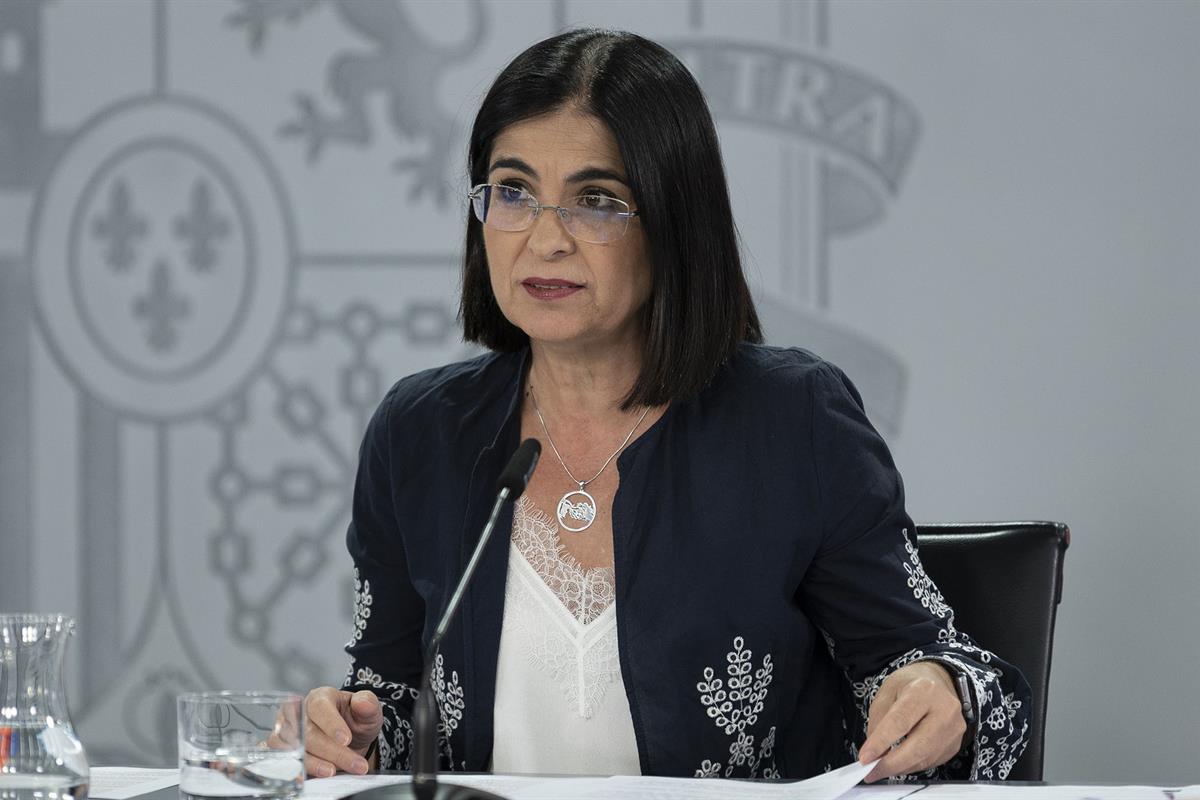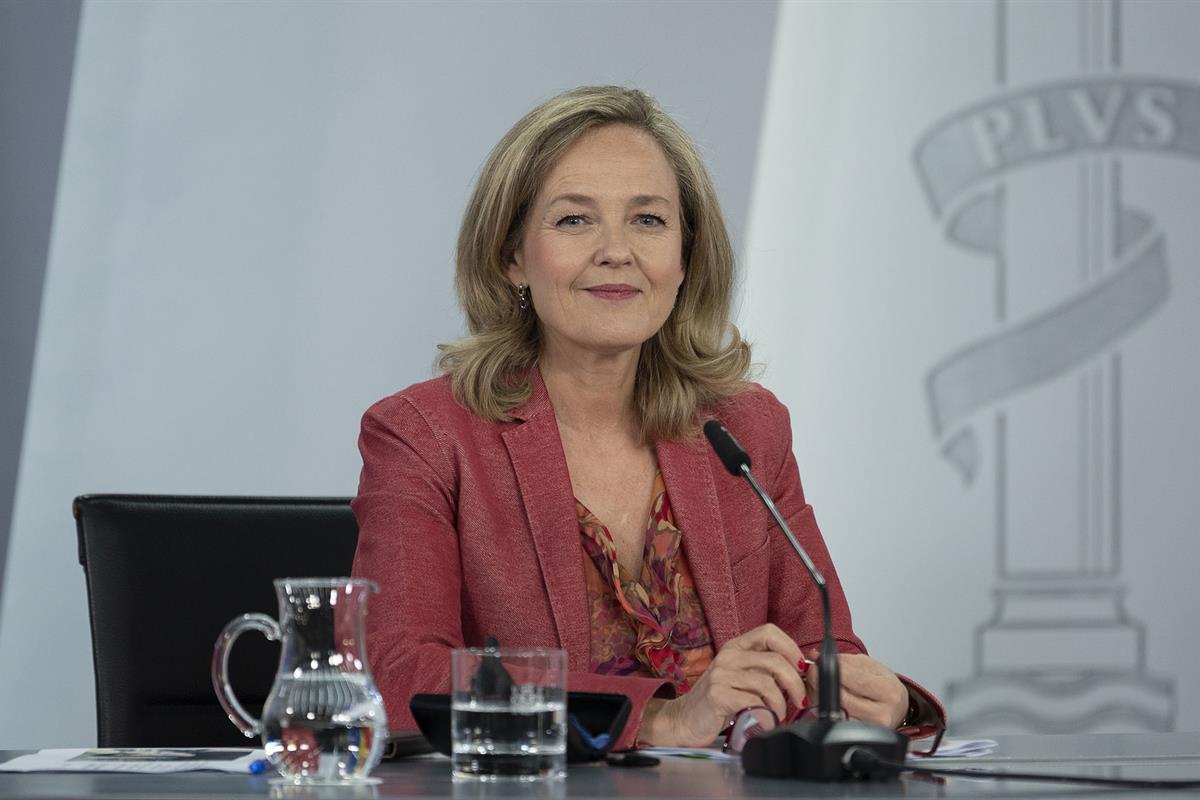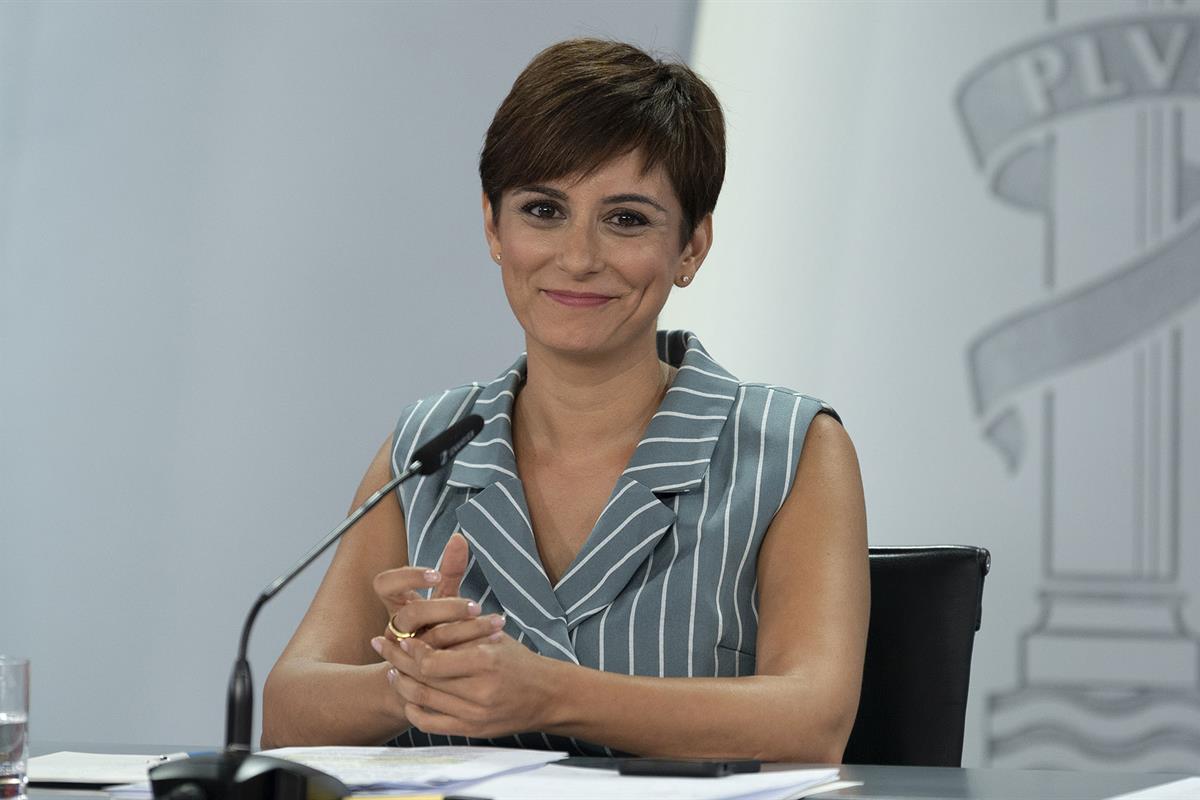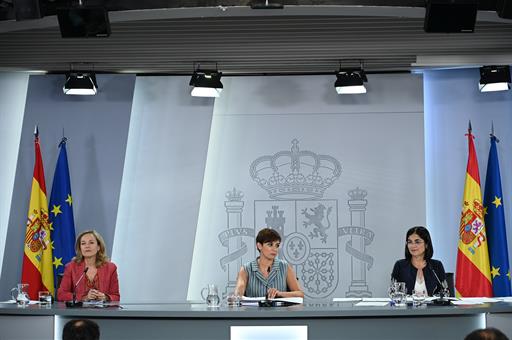The Government of Spain stabilises employment and limits temporary work in the public health system
Council of Ministers - 2022.7.5
Moncloa Palace, Madrid
The Council of Ministers has approved the Royal Decree-law reforming Law 55/2003 on the Framework Statute of the Statutory Staff of the Health Services and establishing the types of temporary contracts in the National Health System and the specific causes for which they can be granted.
The Minister for Health, Carolina Darias, recalled that the reduction of temporary employment in the public sector is a major objective of the Government and that this reform in the health sector, where the rate of temporary employment is particularly high, is "a question of justice and a priority for the country", thanks to which the National Health System (SNS) will be strengthened and certainty given to health professionals and patients.
Darias explained that a stabilisation process will be carried out for the more than 67,000 people who are in a situation of temporary employment in the SNS, the calls for which must be published before 31 December. The procedure for those who have been working continuously in the SNS since before 1 January 2016 will be by competition, while those who have been working for three years since before 31 December 2020 will be able to consolidate their position by means of a competition-public entrance examination.
The new regulation also establishes just two main groups of temporary statutory staff - interim and substitute - and the specific causes that will allow these contracts to be granted.
Temporary agency staff may only be recruited for a maximum period of three years to fill a vacancy that cannot be filled by permanent staff or for the implementation of programmes of a temporary nature, and for a maximum period of nine months within an eighteen-month period for overloading or accumulation of tasks.
Temporary statutory substitute staff will be recruited to temporarily replace incumbents due to holidays and sick leave, to perform on-call shifts for the staff who are exempt from performing them, such as those over 55 years of age, and to cover reductions in working hours.
Furthermore, the minister emphasised, "measures are established so that the health authorities that carry out the hiring process can ensure that the temporary employment rate does not return to such high levels but remain below the established margin of 8%".
10 proton therapy equipment
 Foto: Pool Moncloa/Borja Puig de la Bellacasa
Foto: Pool Moncloa/Borja Puig de la Bellacasa
The Government of Spain has authorised the conclusion of a 271 million-euro contract to provide the NHS with ten proton radiotherapy units to be installed in Andalusia (2), the Canary Islands, Catalonia (2), the Community of Madrid (2), the Community of Valencia, Galicia and the Basque Country.
This equipment will be financed by the Amancio Ortega Gaona Foundation, in accordance with the terms of the agreement signed in October 2021 with the Ministry of Health and the beneficiary autonomous communities for the implementation of protontherapy in the NHS.
This type of radiotherapy is not currently offered in the public system, so its incorporation, said the Minister for Health, will improve the treatment of many types of cancer, especially in paediatric patients.
Darias recalled that, together with the investment of 800 million euros foreseen in the High Technology Equipment Investment Plan (INVEAT), the SNS will take "a giant step" in diagnostic and treatment capacity in our country.
Digital Agenda 2026
 Foto: Pool Moncloa/Borja Puig de la Bellacasa
Foto: Pool Moncloa/Borja Puig de la Bellacasa
The Government of Spain has taken stock of the balance of the Digital Spain Agenda approved in July 2020 and has updated it until 2026.
The First Vice-President of the Government of Spain and Minister for the Economy and Digital Transformation, Nadia Calviño, has assured that Spain has extraordinary infrastructures, leading companies in research and technological change, advanced public administrations and a dynamic start-up ecosystem to achieve the modernisation and digital transformation of the economy and, in turn, "more sustainable and sustained growth and greater prosperity and well-being for the Spanish population as a whole".
Calviño explained that, in the two years since the presentation of the Digital Agenda for Spain progress has been made in three fundamental areas: infrastructures and technology, digitalisation of the economy and digital skills of citizens. Now, the strategy has been updated with the inclusion of the Strategic Projects (PERTE) of the Plan for Recovery, Transformation and Resilience and the and the Retech initiative (Territorial Networks of Technological Specialisation).
With regard to the PERTEs, Calviño stressed that 11 have already been launched and that, although they all incorporate some dimension of digital transformation, there are two specific ones in the field of digitalisation: the PERTE of the New Language Economy, to maximise the value of our languages in this new digital economy, and the PERTE Chip, aimed at strengthening the industrial ecosystem of semiconductors and microprocessors.
The Retech initiative will fund projects with high territorial and economic impact in areas such as AI, digital twins, green tech, cybersecurity, digital entrepreneurship networks, digitalisation in rural and depopulated environments (rural tech), the fashion and textile industry (fashion tech) and digital health, among others.
Treasury Report 2021
The Council of Ministers has examined the Annual Report on the Treasury's Borrowing Policy for 2021, which sets out the lines of action and execution data for the Treasury's financing programme.
Vice-president Nadia Calviño highlighted some data, including the fact that the Treasury was financed last year at the lowest interest rates in its history, that the average maturity of outstanding debt has increased, exceeding 8 years, and that international investors show great confidence in the Treasury of the Kingdom of Spain.
Calviño has maintained that, despite the current uncertainty stemming from the war in Ukraine, geopolitical tensions, inflation, the normalisation of monetary policy and disruptions in global supply chains, the Spanish economy is continuing to grow: "We are taking advantage of this strong growth and the extraordinary evolution of employment to make further progress in fiscal consolidation".
The vice-president concluded with public deficit data for the first quarter of this year, which show that the pre-pandemic level (0.4% of GDP) has been recovered and the targets for 2025 for public deficit and debt are below 3% and 110% of GDP, respectively.
New NATO accessions
 Foto: Pool Moncloa/Borja Puig de la Bellacasa
Foto: Pool Moncloa/Borja Puig de la Bellacasa
Following last week's NATO Summit in Madrid, which approved the accession of Finland and Sweden as new members, the Council of Ministers has formally adopted the agreement on Spain's acceptance of this accession.
The Minister for Territorial Policy and Government Spokesperson, Isabel Rodríguez, pointed out that it was Russia's invasion of Ukraine that has put an end to the historical neutrality of these two countries, which now "seek to defend their democracy and provide security for their country".
The government has also authorised the application of the Contingency Fund for an amount of 999.7 million euros and the granting of an extraordinary credit in the Ministry of Defence to cover the extraordinary expenses of the Armed Forces caused by the invasion of Ukraine. "As a member of the European Union and NATO, Spain has participated in all sanctions measures and we have materially supported the Ukrainian government and people in their legitimate defence," Rodríguez recalled.
State of the Nation Debate and State Tribute to the victims of COVID
The Government Spokesperson announced that the State of the Nation Debate will take place in the Lower House of Parliament on 12, 13 and 14 July. Therefore, next week's Council of Ministers will meet on Monday 11 July.
Rodríguez stated that the government wants to be accountable for its management to the parliamentary groups and citizens, to gather constructive proposals for the country and to re-establish institutional stability by recovering an event that was last held in 2015, seven years ago.
Isabel Rodríguez also announced that the Royal Palace will host the third State tribute to the victims of COVID-19 on Friday 15 July, which will be presided over by the King and Queen of Spain.
Non official translation





